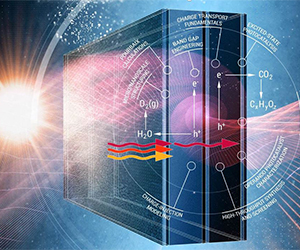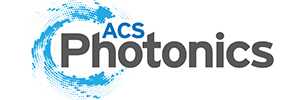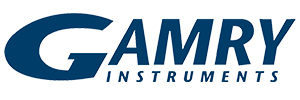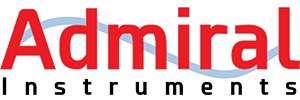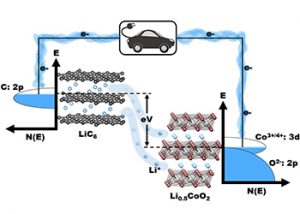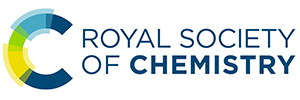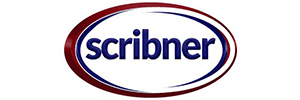 ECS is hosting a series of webinars presented by distinguished speakers this June. Join us! Speakers include Harry Atwater from the California Institute of Technology, Arumugam Manthiram from the University of Texas at Austin, and Paul Kenis from the University of Illinois at Urbana-Champaign. Topics include batteries, energy, carbon, and more. Considering attending? Learn more about what you can expect to hear about from our presenters!
ECS is hosting a series of webinars presented by distinguished speakers this June. Join us! Speakers include Harry Atwater from the California Institute of Technology, Arumugam Manthiram from the University of Texas at Austin, and Paul Kenis from the University of Illinois at Urbana-Champaign. Topics include batteries, energy, carbon, and more. Considering attending? Learn more about what you can expect to hear about from our presenters!
| Webinar Title | Presenter | Date | ECS Award |
|
Harry Atwater |
June 10, 2020 |
ECS Lecture from the 237th ECS Meeting |
|
|
Intricacies of High-Energy Cathodes for Lithium-Ion Batteries |
Arumugam Manthiram |
June 17, 2020 |
Henry B. Linford Award Address for Distinguished Teaching |
|
Electrochemical CO2 Reduction: Path Towards a Carbon Neutral Chemical Industry? |
Paul Kenis |
June 24, 2020 |
Energy Technology Division Research Award Address |
All webinars are hosted from 1pm-2pm ET.
Presenter and webinar information
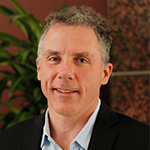
New Directions for Energy from Sunlight
Presenter: Harry Atwater, Howard Hughes Professor of Applied Physics and Materials at the California Institute of Technology
Date: June 10, 2020
Time: 1-2pm ET
“Sunlight is an inexhaustible resource. Harnessing its power could drive a circular economy to generate energy, reduce carbon emissions, reduce materials waste, and eventually even to generate the negative carbon emissions needed to bring our warming planet back into balance. This webinar will give an outlook for opportunities in high efficiency photovoltaics and artificial photosynthesis, and in particular the generation of chemical fuels from sunlight by reduction of carbon dioxide.” – Harry Atwater
Benefits of attending?
- New perspectives on future opportunities for photovoltaics
- An outlook for synthesis of hydrogen by photoelectrochemical water splitting
- Survey of directions for renewable fuels from reduction of carbon dioxide
Atwater’s background
Harry Atwater is the Howard Hughes Professor of Applied Physics and Materials Science at the California Institute of Technology (Caltech). His scientific interests have two themes: light-matter interactions in materials, and solar energy conversion. An early pioneer in nanophotonics and plasmonics, Atwater named the field of plasmonics in 2001. He created new high efficiency solar cell designs, and pioneered principles for light management in solar cells. Atwater currently serves as director of the Joint Center for Artificial Photosynthesis, a Department of Energy (DOE) Innovation Hub.
Atwater is a member of the US National Academy of Engineering, and a fellow of the American Physical Society (APS), Materials Research Society (MRS), International Society for Optics and Photonics (SPIE), and the National Academy of Inventors. He is the founding editor in chief for the journal ACS Photonics and Associate Editor for the IEEE Journal of Photovoltaics. In 2006, Atwater co-founded the Gordon Research Conference on Plasmonics, which he chaired in 2008. He was also the founding director of the Resnick Sustainability Institute at Caltech, and strategic director for the QESST photovoltaics NSF Engineering Research Center. Atwater co-founded Alta Devices, the current world records holder for 1-Sun single junction solar cell efficiency and module efficiency. He chairs the LightSail Committee for the Breakthrough Starshot program.
Atwater has been honored by awards, including Clarivate Highly Cited Researcher (2014-2020), IEEE William R. Cherry Award (2019); Kavli Innovations in Chemistry Lecture Award, American Chemical Society (2018); APS David Adler Lectureship for Advances in Materials Physics (2016); Julius Springer Prize for Applied Physics (2014; Royal Netherlands Academy of Arts and Sciences Fellowship (2013); ENI Prize for Renewable and Nonconventional Energy (2012); SPIE Green Photonics Award (2012); MRS Kavli Lecturer in Nanoscience (2010); and the Popular Mechanics Breakthrough Award (2010).
Professor Atwater served as president of MRS in 2000 and trustee of the Gordon Research Conferences. He received his BS, MS, and PhD degrees from the Massachusetts Institute of Technology respectively in 1981, 1983, and 1987. He held the IBM Postdoctoral Fellowship at Harvard University from 1987-88 and has been a member of the Caltech faculty since 1988, where he teaches graduate level Applied Physics classes in nanophotonics, solid state physics, and device physics.
Sponsors
A special thank you to our sponsors Admiral Instruments, American Chemical Society, and Gamry Instruments.
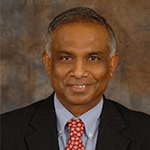
Intricacies of High-Energy Cathodes for Lithium-Ion Batteries
Presenter: Arumugam Manthiram, Cockrell Family Regents Chair in Enginneering and Director of Texas Materials Institute, University of Texas at Austin
Date: June 17, 2020
Time: 1-2pm ET
“As we move forward, batteries with high-energy density and long life at an affordable cost are needed for electrification of the transportation sector and an efficient utilization of renewable energy sources. This webinar will first highlight the development of oxide cathodes for lithium-ion batteries over the years. Then, it will focus on the challenges and prospects of layered oxide cathodes with high nickel contents and low or no cobalt content for lithium-ion batteries. Optimized synthesis and advanced characterization methodologies to overcome the challenges will be presented.” – Arumugam Manthiram
Benefits of attending?
- Recognize the fundamental science behind the development of high-energy density cathodes for lithium-ion batteries in the 1980s
- Understand the richness and complexity of layered oxide cathodes for lithium-ion batteries
- Exposure to a perspective on high-energy, long-life, safe lithium-ion batteries as we march forward
Manthiram’s background
Arumugam Manthiram currently holds the Cockrell Family Regents Chair in Engineering at the University of Texas at Austin (UT Austin) where he is also director of the Materials Science and Engineering Program at the Texas Materials Institute. He received his PhD degree in chemistry from the Indian Institute of Technology Madras in 1981. After working as a postdoctoral researcher at the University of Oxford and at UT Austin with 2019 Chemistry Nobel Laureate John B. Goodenough, he became a faculty member in UT Austin’s Department of Mechanical Engineering UT Austin in 1991.
Manthiram’s research focuses on batteries and fuel cells. He authored more than 770 journal articles with 59,000 citations and an h-index of 122. He provided research training to more than 250 students and postdoctoral fellows, including the graduation of 60 PhD students and 26 MS students.
Manthiram is a fellow of Materials Research Society, The Electrochemical Society (ECS), American Ceramic Society, Royal Society of Chemistry, American Association for the Advancement of Science, and World Academy of Materials and Manufacturing Engineering. He received the UT Austin Outstanding Graduate Teaching Award (2012), ECS Battery Division Research Award (2014), Distinguished Alumnus Award of the Indian Institute of Technology Madras (2015), Billy and Claude R. Hocott Distinguished Centennial Engineering Research Award (2016), and Da Vinci Award (2017). An elected member of the World Academy of Ceramics, Manthiram was a Web of Science Highly Cited Researcher in 2017 and 2018. He chaired the ECS Battery Division from 2010-2012. Manthiram founded the ECS UT-Austin Student Chapter in 2006 and continues to serve as the Faculty Advisor.
Sponsors
A special thank you to our sponsors Admiral Instruments, Hiden Analytical, and the Royal Society of Chemistry.
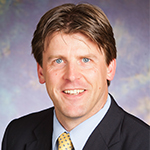 Electrochemical CO2 Reduction: Path Towards a Carbon Neutral Chemical Industry?
Electrochemical CO2 Reduction: Path Towards a Carbon Neutral Chemical Industry?
Presenter: Paul Kenis, Elio Eliakim Tarika Endowed Chair in Chemical Engineering, University of Illinois at Urbana-Champaign
Date: June 24, 2020
Time: 1-2pm ET
“The (petro-) chemical industry applies energy-intense thermal/catalytic processes to convert fossil fuels into different intermediates, bulk chemicals, and fuels while emitting a sizeable fraction of the anthropogenic CO2 emissions associated with climate change. In contrast, electroreduction of CO2 to intermediates such as CO, ethylene, and ethanol not only uses some of the otherwise emitted CO2 as the feed, this process also emits drastically less CO2 than the traditional chemical processes. This presentation will summarize the state-of-the-art in CO2 electrocatalysis and how it is affected by electrolyte composition, pH, and cell design. It will also explore the techno-economic and life-cycle prospects of CO2 electroreduction technology. Analysis shows that addressing the significant energy requirements of the anode (oxygen evolution reaction) and the lack of catalyst and electrode durability of catalysts and electrodes are key to achieving economic feasibility and carbon neutrality. We have shown that a co-conversion approach that involves oxidation of organic substrates such as glycerol (a waste product of biofuel production) on the anode (thus replacing the oxygen evolution reaction) drastically enhances the prospects of CO2 electroreduction technology becoming a key component to a future carbon neutral chemical industry.” – Paul J.A. Kenis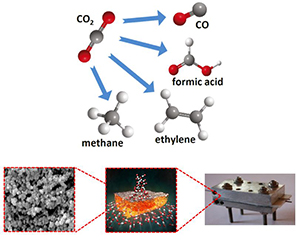
Benefits of attending?
- Summary of the status of CO2 electrocatalysis
- Techno-economic and life-cycle analysis of CO2 electrolysis to identify remaining hurdles
- The prospects of CO2 electrolysis technology contributing to a future sustainable chemical industry
Kenis’s background
Paul J.A. Kenis is the Elio E. Tarika endowed Chair and Professor of Chemical and Biomolecular Engineering at the University of Illinois at Urbana-Champaign (UIUC), and an investigator of the International Institute for Carbon-Neutral Energy Research at Kyushu University, Japan, and UIUC.
A native of the Netherlands, Kenis received his BS in chemistry from Radboud University Nijmegen. There he worked on model systems for metalloproteins with Roeland Nolte. He completed his PhD in chemical engineering at the Universiteit Twente, working with David Reinhoudt on films for nonlinear optical applications. As a postdoc with George Whitesides at Harvard University, he explored the then emerging area of microfluidics.
At UIUC, Kenis develops microchemical systems with a range of applications: fuel cells, radiolabeling of biomolecules, protein/pharmaceutical crystallization, and platforms for cell biology studies. His recent efforts on CO2 electroreduction pursue suitable catalysts, electrodes, electrolyzer designs, determining suitable operation conditions, and performing techno-economic analysis as a guide to more energy efficient systems.
Kenis authored over 200 publications and 14 patents. In 2019, he became a Fellow of The Electrochemical Society. He has been recognized with a 3M Young Faculty award, NSF CAREER award, Xerox award, and best paper awards from the American Institute of Chemical Engineers and Society for Experimental Biology and Medicine. He is co-author of reports on the prospects of CO2 utilization at scale issued by the National Academies and Mission Innovation global consortium.
Sponsors
A special thank you to our sponsors Admiral Instruments, Hiden Analytical, and Scribner.
Thank you to all our sponsors!
Series sponsorship gives businesses unique visibility with the electrochemistry and solid state science community.
The webinars are broadcast on PhysicsWorld.com, the official website of the Institute of Physics (ECS’s publishing partner). The site, which hosts webinars from many of the world’s leading scientific manufacturing firms:
- Generates more than 800,000 monthly page views
- With a primary audience of global scientific researchers
Contact Anna.Olsen@electrochem.org to reserve your sponsorship space today!
ECS Webinar Sponsorship hosted by IOP Publishing and PhysicsWorld.com


